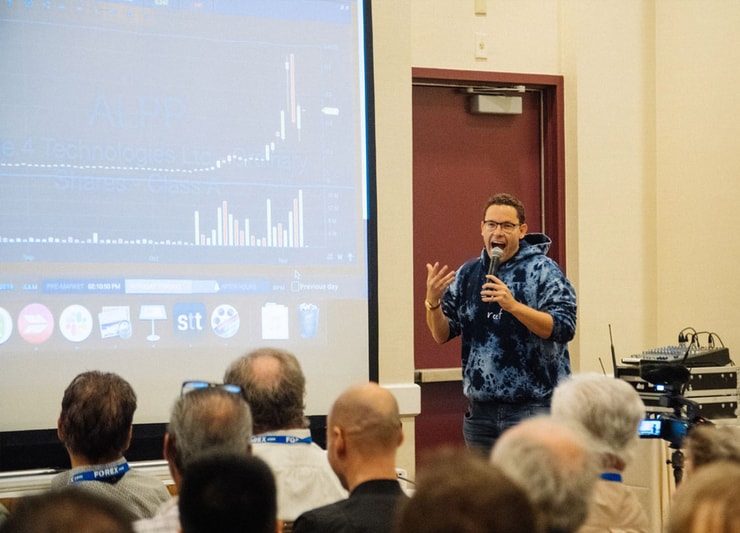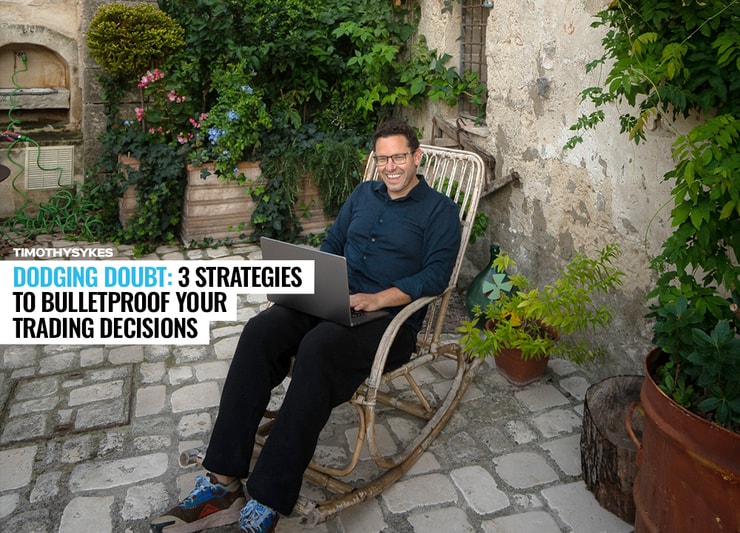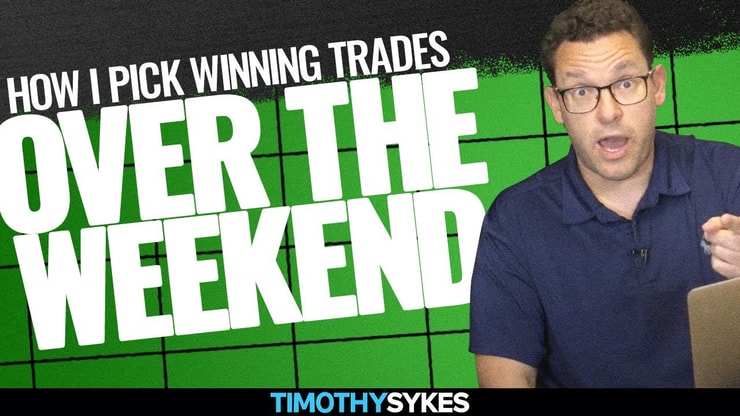After 20-plus years of trading and banking, over $7.4 million in profits…
I wouldn’t fall prey to a mistake like this…
But last Friday, I received a humbling lesson.
I spotted what looked like a flawless setup, ticking every box.
But instead of banking a potential 10-20% profit, I watched the trade on the sidelines.
The culprit?
Outside voices.
Yep, I second-guessed myself and let external opinions get in the way.
If a veteran like me can make such a blunder, believe me, it’s a pitfall any trader can fall into.
Doubting yourself can spiral into overtrading, revenge trading, tilt, and other account-draining disasters.
So, how do I keep such doubts at bay?
Here are three steps I take to avoid second-guessing myself.
Table of Contents
The Trade That Got Away
If you’ve been reading the blog this year, you know one of my best trades this year has been my weekend strategy.
The potential trade I was looking into was in the ticker symbol MCOM.
One of the reasons why I liked it was that the company was set to announce news late on Monday…
Heads up, @Micromobility shareholders! An important message from our CEO @palella is coming your way at 2 PM today. Don’t miss out!
— micromobility.com News (@mcomnews) August 28, 2023
Usually, traders will overlook news late in the day on Friday because they’re winding down and getting ready for the weekend.
However, if the news has substance, it will likely be talked about over the weekend, and chances are it will be some bullish price action heading into Monday.
That’s why I always look for strong-moving stocks late on Fridays with catalysts.
So there we have MCOM telling us they will announce the news on Monday…
Source: StocksToTrade
But instead of just going with what I knew works…
I let outside voices interfere with my decision making.
Some of my students told me the company was trash, and that they were just a pump and dump.
And while I should have been focused on the risk vs. reward, I let those opinions sway my decision.
On Friday, the shares closed at $0.08.
And by Monday, they traded at a high of $0.11.
That’s a 37% move. Of course, I normally don’t hold for that long, but I believe I could have gotten 10-20% out of it.
Either way, I wasn’t in the trade, so it doesn’t matter.
So how do I stop this from happening, and how can you use this in case you’re in the same situation?
#1 Be Data Dependent

I journal all my trades. Doing this allows me to understand better how I’m trading and identify what is and isn’t working.
And, like I said earlier, my weekend strategy has been one of my best performers all year.
That’s not just me thinking it…that’s what my numbers tell me.
That alone should have been enough reason for me to take the trade.
It’s a setup that’s worked for me in the past and recently.
That’s why it’s important to know where you stand.
You should know what setups you trade well and which you don’t.
Not only that but be aware of what’s currently working in this market.
That’s why journaling is so important.
More Breaking News
- Rivian’s Strategic Expansion with New Chief Customer Officer
- Robust Strategy Expands Bitcoin Holdings Amid Turbulent Market
- Coupang Faces Investor Trust Dilemma Amid Discriminatory Probes and Data Breaches
- Fabrinet’s Strategic Moves Drive Positive Market Sentiment
I keep all my stats on Profit.ly, check them out for yourself.
#2 Trading Is Not A Team Sport

I’m not against chat rooms. Heck, I run one myself.
I think it’s good when people share news and point out moving stocks.
But that’s it.
I want all my students to be self-sufficient.
I don’t want them to depend on anyone but themselves to point out their entries and exits.
Sometimes, when you have too many voices in the mix…
You end up with analysis paralysis.
Do you know who likes to trade in teams?
Short-sellers.
And it’s their herd mentality that often gets them crushed during a short squeeze.
It’s okay to have trading friends…
It’s okay to discuss your trades after the fact, but you must learn how to think and act independently.
#3 Stick To Your Trading Plan & Rules

I should have taken the trade-in MCOM.
And put a plan together.
On trades like that, I’m aiming for 10-20%. And if I don’t get that, or if the stock doesn’t move, then I’m out.
I aim to cut losses quickly.
I don’t want to sit around, hope, and prey, it moves my way.
No trade should be stressful if you have a plan and size correctly.
That’s why it irritated me that I didn’t follow through even though I liked the setup.
Every trade has the chance of being a loser.
There are no guarantees in trading.
If you can justify your reasoning and create a plan that makes sense based on risk vs. reward, then you’ve got to trade your plan.
Getting 1% Better Everyday

None of my 30+ millionaire students became success stories overnight.
In fact, most of them struggled during their first and second year.
That’s why I tell my students not to focus on the profits during the early stages of their journey.
If you can get 1% better each day, then you’ll be 37x better within a year.
Here’s your chance to get 1% better today…
Each day my team and I host live training sessions.
They are geared at making you a better trader.
We host these live training sessions at no cost to you.
All you have to do is register.










Leave a reply